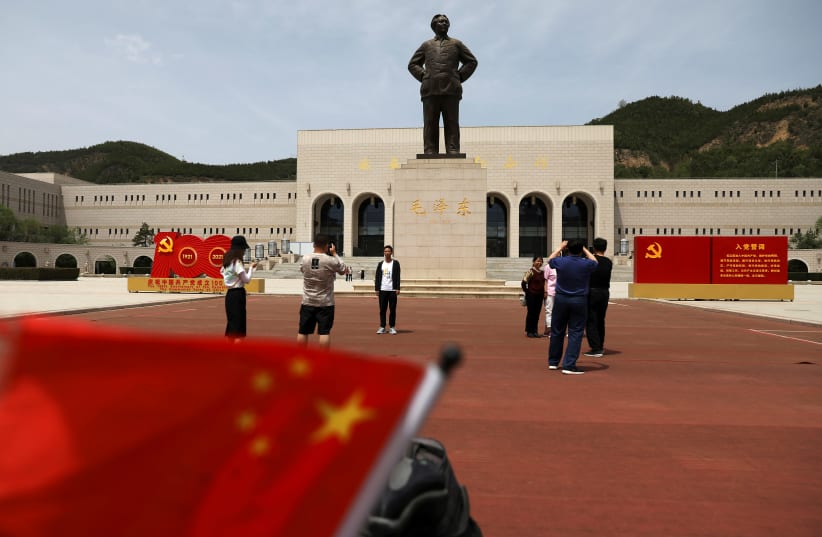As the world watched the West struggle to evacuate its citizens and allies from Afghanistan before the deadline of August 31, the Islamic State Khorasan (ISIS-K) took advantage of the chaos in Kabul to launch a deadly attack outside the airport, killing at least 170 people and injuring another 200. The terrorist attack not only jeopardized the evacuation mission, but it has also demonstrated ISIS-K’s growing strength and their determination to undermine the Taliban’s control.
Amid the disastrous withdrawal of American troops, the deteriorating humanitarian crisis and the looming terrorist threat, Beijing has been developing ties with the Taliban and has even indicated its willingness to recognize a Taliban government. China is indifferent to the internal politics of Afghanistan, its main priority is to ensure its own security. Wary of a terrorist threat in Xinjiang, Beijing has worked with the Taliban and the Haqqani network for the past seven years to track down Uighur Muslims in Afghanistan. The Taliban wishes to gain China’s recognition and potential investments. Before the heavily publicized meeting in July between Chinese Foreign Minister Wang Yi and a Taliban delegation, the Taliban publicly refused to condemn China’s persecution of Uighurs and has pledged to not harbor Uighur fundamentalists in Afghanistan.
However, the Taliban is not a monolithic group and there are many factions who view China as an enemy. Their promise to not harbor Uighurs is as hollow as their pledge in Doha to keep al-Qaeda and other Islamist groups from operating in their territory. Al-Qaeda, which remains heavily embedded within the Taliban, has been providing support to the East Turkestan Islamic Movement in Xinjiang. It’s inevitable that extremist groups in Afghanistan will start to target China over their treatment of Uighurs, especially if Chinese investments fail to materialize. For the time being, the Taliban is trying to balance its fanaticism with its pragmatic interests, but it’s an unsustainable strategy.
Despite most jihadi groups cheering the Taliban’s swift takeover of the country, ISIS-K has been openly hostile to the Taliban, claiming that they are apostates who are part of a US-backed conspiracy. ISIS-K is the Afghan branch of the Islamic State and has claimed responsibility for nearly 100 terrorist attacks in Afghanistan and Pakistan. Founded in 2014 in the Khorasan region, the group has recruited former members of the Taliban, Tehrik-i-Taliban Pakistan (TTP), the Haqqani network, al-Qaeda and many other terrorist organizations. A recent UN report has suggested that the group has roughly 2,000 fighters, although this figure is likely to increase significantly due to the power vacuum left in Afghanistan. Their goal is to exploit the divisions within the Taliban in order to recruit more jihadis and expand their presence. This comes at a time when the Taliban leadership is attempting to present a more palatable image to the world in a bid to gain recognition and legitimize their control over Afghanistan.
Since the fall of Kabul on August 15, the Taliban has promised amnesty, women’s rights under sharia law and media freedom. Yet the fighters on the ground have already started rounding up opponents, kidnapping women to use as sex slaves and preventing evacuees from reaching Kabul airport. This is only a glimpse of the atrocities that await Afghans, but it is also indicative of the lack of control that Taliban leaders – especially those from the political faction – have on their own fighters. The emergence of ISIS-K and the violence that Taliban jihadis are exhibiting show that Afghanistan will once again become a safe haven for terrorism. Furthermore, the Taliban’s decision to release 5,000 terrorists detained in Bagram prison – also known as Afghanistan’s Guantanamo Bay – will further radicalize and destabilize the region.
While the Taliban has successfully taken over most of Afghanistan at an unprecedented pace, it’s doubtful that they’ll be able to retain control over their territory. Competing jihadi groups will emerge and challenge the Taliban’s authority. Meanwhile, the Panjshir resistance – an anti-Taliban force led by military leader Ahmad Massoud and former Afghan vice president Amrullah Saleh – is gaining momentum and support. As America’s occupation draws to an end, Afghanistan seems to be on the brink of another civil war. The instability in Afghanistan will ultimately spill over to neighboring countries, including China. Beijing’s strategy to improve ties with the Taliban borders on cold pragmatism and arrogant naivety.
The writer is a political consultant and the Director of International Relations at the Center of Political and Foreign Affairs.
